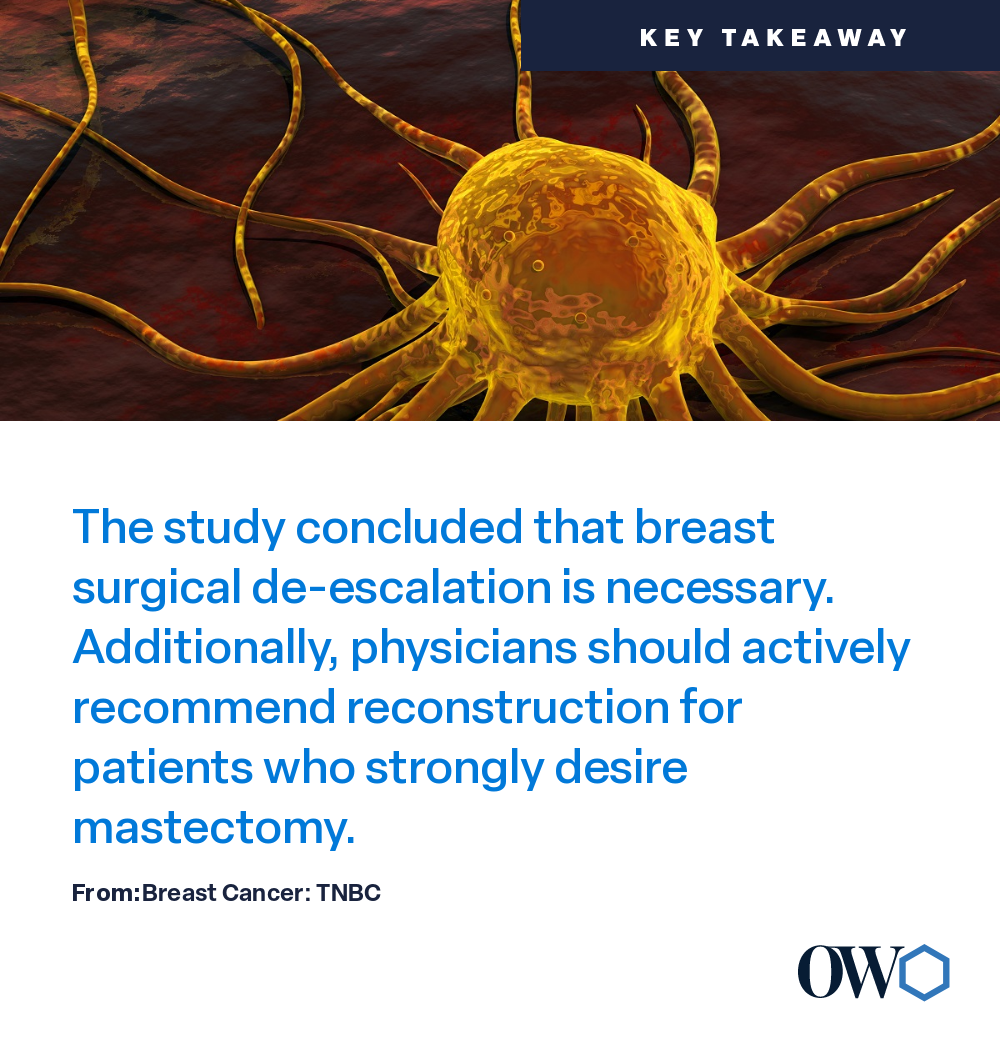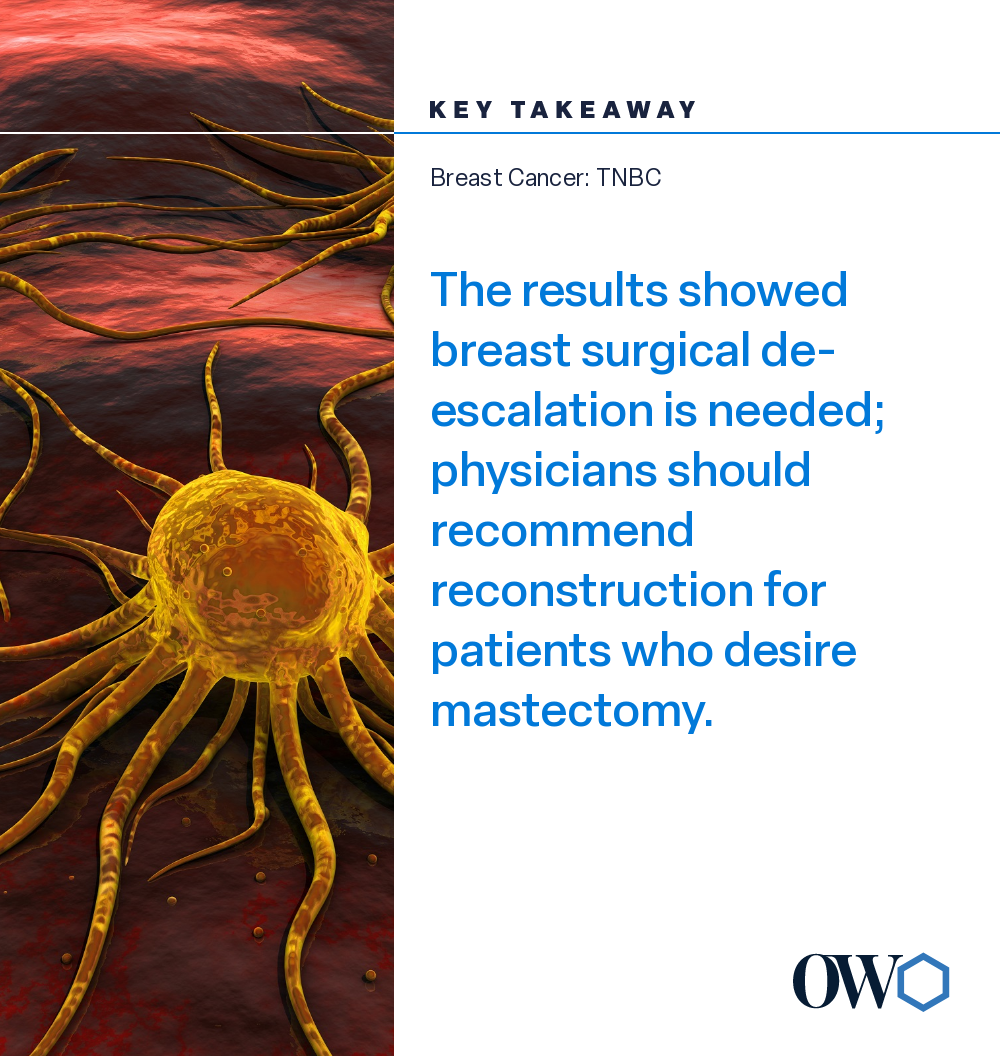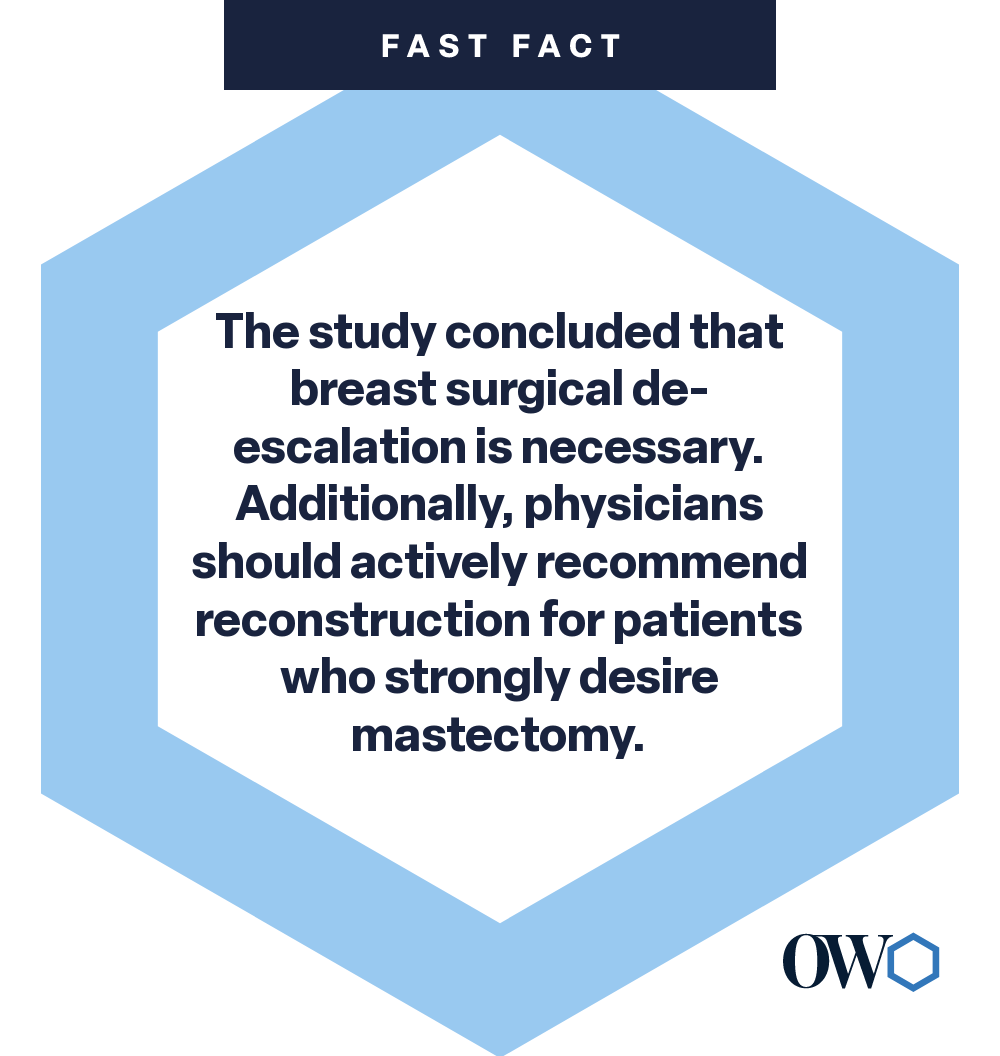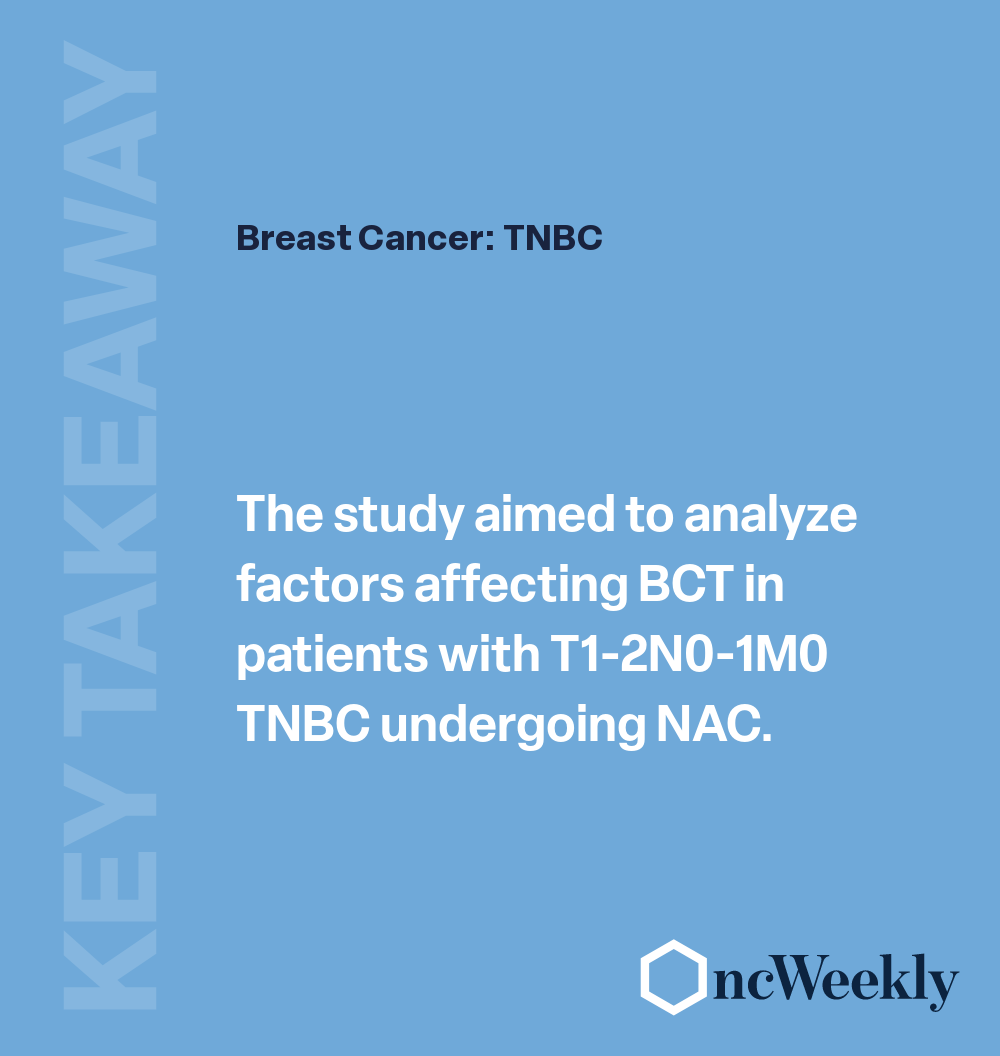KEY TAKEAWAYS
- The study aimed to analyze factors affecting BCT in patients with T1-2N0-1M0 TNBC undergoing NAC.
- The results showed breast surgical de-escalation is needed; physicians should recommend reconstruction for patients who desire mastectomy.
Many patients with T1-2N0-1M0 triple-negative breast cancer (TNBC) undergoing neoadjuvant chemotherapy (NAC) do not receive breast-conserving therapy (BCT) due to concerns about achieving non-pCR or the presence of lymph node metastasis.
Lidan Chang and the team aimed to analyze factors influencing surgical choices in patients with T1-2N0-1M0 TNBC undergoing NAC and assess survival outcomes from 2010 to 2017 using SEER data.
Patients with T1-2N0-1M0 TNBC who underwent NAC between 2010 and 2017 were identified from the SEER database. Factors influencing surgical modalities were analyzed using multinomial logistic regression. Overall survival (OS) and breast cancer-specific survival (BCSS) were evaluated with Kaplan-Meier curves and Cox proportional hazards models. Further stratified subgroup analyses were conducted based on NAC response and N-stage, with adjusted HRs calculated to exclude potential bias.
The results showed that among 1,112 patients (median follow-up: 81 months), 58.5% received BCT, 23.6% received reconstruction, and 17.9% received mastectomy. Response to NAC and N-stage influenced both surgical choice and were independent predictors for OS and BCSS. Survival differences mainly affected OS. BCT demonstrated superior or equal 10-year OS compared to mastectomy in patients with partial response (PR) (77.4% vs. 64.1%, P= 0.013), no response (NR) (44.9% vs. 64.2%, P = 0.33), or N1 stage (75.7% vs. 57.4%, P= 0.0021). In the N1-PR cohort, mastectomy was associated with worse OS (P= 0.0012). There was no statistical difference in OS or BCSS between reconstruction and BCT (P> 0.05).
The study concluded that breast surgical de-escalation is necessary. Additionally, physicians should actively recommend reconstruction for patients who strongly desire mastectomy.
This study was supported by the National Natural Science Foundation of China, the International Science and Technology Cooperation Program Project of Shaanxi Province, China, and the Natural Science Foundation of Shaanxi Provincial Department of Education.
Source: https://pubmed.ncbi.nlm.nih.gov/39085623/
Chang L, Liu D, Hao Q, et al. (2024). “Impact of response to neoadjuvant chemotherapy on surgical modality in patients with T1-2N0-1M0 triple-negative breast cancer.” J Cancer Res Clin Oncol. 2024;150(8):378. Published 2024 Aug 1. doi:10.1007/s00432-024-05907-y







